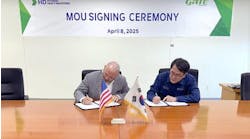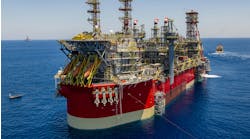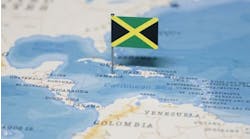The oil and gas sector has a legacy of only employing those who are at the top of their game. Only by doing this are E&P companies able to continually push the limits of what is possible. And, as operators face ever more challenging environments and use increasingly sophisticated techniques to improve recovery rates, it is vital they have and retain the right teams with the right skills.
The importance of training has long been acknowledged by the energy sector as the key to ensuring employees have the necessary skills to do their job effectively. But being competent at your job and being able to bring tangible benefits to your company are two very different things.
Those organizations who will steal the competitive advantage are the ones who have a driven workforce determined to find innovative solutions, and are flexible enough to take different approaches to a variety of projects.
As operators head to increasingly harsh environments and face ever greater challenges of maximizing yield from aging fields such those in the North Sea, in-house experts are facing growing pressures not only to out-perform their peers but also retain the pool of talented individuals they have developed.
Great teams do not come ready-made. They need to be developed through continuous and relevant training. Training needs to be a permanent fixture in career development, not just the reserve of new entrants and experienced industry practitioners.
Many companies rely on internal specialists to guide teams – often a senior manager, but when that person moves on, so does that wealth of knowledge and experience. Companies now are recognizing that external training organizations can be a valuable addition to skills development. But finding a training solution that brings real and measurable benefits can be a challenge in itself.
Training needs to be much more than a “tick box” exercise. Rather, it needs to be tailored to each specific group and designed to push people to surpass what they thought they were capable of achieving. With technology and techniques rapidly changing, finding a provider that is able to provide an up-to-the-minute insight into the sector or specific field is vital. For example, AGR TRACS Training uses tutors who are active practitioners in their field, and develops tailored courses to benefit workers and provide training that help them to hone their skills to the highest standard.
Motivation is a central factor to developing cutting-edge teams. While there are numerous factors contributing to motivation levels, relevant and cutting-edge training is a key component.
However, staff receiving stimulating guidance which gives them insights into new and leading techniques are more inclined to be focused and passionate about their work. Fostering a certain level of fervor during training sessions not only empowers employees but can also turn everyday engineering into a dynamic and game changing event.
When all parties are well trained and enthusiastic about their discipline, project teams can work at optimum performance. A disenfranchised staff breeds a negative environment, hampering a company’s ability to pioneer in its industry. Specialist training plays a crucial role in making teams work.
In order to reach the pinnacle of performance, one needs to have a strong team structure with good leadership at the helm. This is where training can falter as senior professionals in the industry reach what appears to be a “glass ceiling” in training, where they are considered to have the necessary experience so as not to warrant any further training. This can create stagnant companies resistant to change and embracing new approaches. Providing training throughout an employee’s career also builds greater loyalty among staff and helps companies retain talent.
An experienced team is obviously valuable to E&P activity, providing a qualified pool of talent that can face any engineering challenge. When the race is on with to reach the frontiers of oil and gas exploration, having a bank of talented and highly-trained people helps you get there before your competition does.
From a financial standpoint, companies want to do business with people they trust. Knowing that teams are experienced and knowledgeable, they are more likely to want to back operations and partner on projects. This belief in competence is a direct response to the investment made in staff.
Being able to think outside the box is a highly regarded quality in the oil and gas industry, but without fuelling this ability, creativity and the necessary ethos to push boundaries may be starved of oxygen. High-level, tailored training gives oil and gas professionals confidence in their ability to innovate.
Mark Bentley
Director of AGR TRACS Training, part of AGR Petroleum Services
This page reflects viewpoints on the political, economic, cultural, technological, and environmental issues that shape the future of the petroleum industry. Offshore Magazine invites you to share your thoughts. Email your Beyond the Horizon manuscript to David Paganie at[email protected].
Offshore Articles Archives
View Oil and Gas Articles on PennEnergy.com


